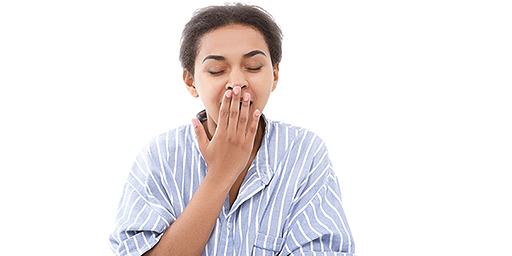Physical activity provides us with natural stress relief. Our body decreases cortisol levels when we increase our oxygen levels, and aerobic activities can do just that. For a good night’s sleep and to maintain our body clock, known as our “circadian rhythm”, experts recommend seven to nine hours of uninterrupted sleep for adults.
This rhythm works closely with the hormones in our bodies, such as cortisol. Cortisol is released during times of stress, and elevated levels of this hormone make it harder for us to fall and stay asleep. Cortisol levels can also be lowered through mindfulness-based activities, which help calm our nervous system.
Balancing hormones and staying active can help. By getting 150 minutes of moderate-to-vigorous physical activity weekly, you’ll be catching ZZZs like a pro in no time! Aim for 30 minutes of moderate to-vigorous physical activity per day like swimming or running to contribute to your 150 minutes of weekly activity.
Avoid screens before bedtime, as they suppress melatonin, a hormone involved in your circadian rhythm. Avoid strenuous activity close to bedtime. Gentle stretching, or a walk or wheel outdoors, are all excellent ways to prepare your body for sleep mode. Establish a calming and relaxing bedtime routine, such as reading or taking a warm bath to signal to your brain and body that it’s time to log-off.
- Adam Hunter













